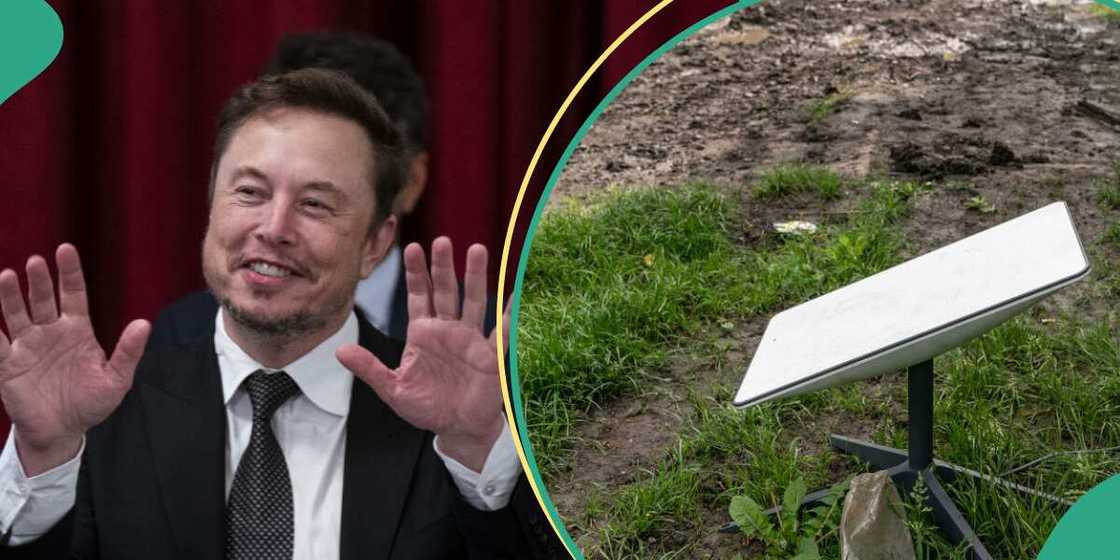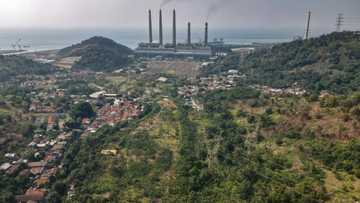New Details Reveal Why Zimbabwe, 2 African Countries Banned Elon Musk's Starlink
- Several African countries have banned the services of Elon Musk Starlink
- Specifically, South Africa, Zimbabwe, and Senegal issued strict orders to the company, noting that it would not be allowed to operate
- Meanwhile, the Nigerian government has asked the internet company to bring down the cost for users across the country
Elon Musk's Starlink debuted in Nigeria in January 2023 and promised a new era of high-speed internet connectivity.
The company promised a low-latency internet to places where it is either unstable or inaccessible.

Source: Getty Images
The company has since spread its services to other African countries, including Mozambique, Rwanda, Mauritius, and Sierra Leone, with 19 other African countries scheduled for launch in late this year or early 2024.
The company's operation in Africa could have been smoother as it faces regulatory concerns in several African countries.
PAY ATTENTION: Join Legit.ng Telegram channel! Never miss important updates!
Starlink fails to meet regulatory standards in South Africa
On August 14, 2023, the South African government banned the import and distribution of Starlink kits. The country asked that a local internet service provider (ISP) stop acquiring, distributing, and facilitating the sale of the kits.
According to BusinessInsider, the ban is related to legal requirements imposed by the Electronics Communications Act (ECA) mandating that historically disadvantaged (HDGs) groups must have 30% of a company's shares before getting approval for telecoms licenses and operating a broadband service locally.
Per the regulator, HDGs include black people, youth, women, and people with disabilities. The government told Starlink to stop operations since it could not meet the requirements.
Zimbabwe issues strict rules for operations
In Early September, Zimbabwe's Postal and Telecommunications Regulatory Authority (POTRAZ) cautioned the Elon Musk-owned Starlink users and dealers that they must have required licenses before being allowed to operate.
Zimbabwe proposed two options for Starlink to apply directly for a license or partner with local operators in the country to offer its services.
The Zimbabwean authorities expressed concerns about companies distributing Starlink's products on premises nationwide.
It told local resellers to obtain a virtual network operator (VNO) before they could operate Starlink services in the country.
It is illegal to operate Starlink services in the country without a valid licence, and is punishable by law.
Senegal cracks down on Starlink dealers
In Senegal, the government is cracking down on those selling Starlink kits for illegally providing internet access and unauthorised marketing.
The move comes after the government shut down the company's internet for the third time within a year.
On August 7, the government arrested five people for selling Starlink terminals without due license or authorisation.
The government stated that the five people face up to five years in prison or a $100,000 fine.

Read also
MTN laments destruction of facilities in Southeast days after acquiring 2.6GHz spectrum band
Nigeria asks Starlink to bring down price
In Nigeria, the country's regulatory body, the Nigerian Communications Commission, said it is in talks with Starlink to bring down the costs following complaints that the satellite company's services are exorbitant.
Legit.ng reported that the Executive Vice Chairman of Nigeria, the Nigerian Communication Commission (NCC) Umar Danbatta, the Commission is seriously engaging with Starlink to reduce its service costs in Nigeria.
Danbatta stated this at the ongoing Industry Consumer Advisory Forum in Lagos and said making the Starlink service affordable will help close the country's connectivity gap and make internet connections accessible to rural and underserved areas.
He said despite many internet satellite providers in Nigeria, Starlink stands out regarding speed and service operations.
The NCC boss said the Commission is looking at the price of Starlink terminal so that Nigerians can afford and enjoy the service, saying that the service is faster than 5G and the corporate world in Nigeria needs its services.
Nigerian man shares experience using Elon Musk’s Starlink network after paying over N400k to purchase
Earlier, Legit.ng reported that a Nigerian man, Bello Gbadebo, has taken to social media to provide his experience using the newly launched Elon Musk satellite internet service, Starlink.
He was among the few Nigerians who preordered when Starlink announced plans to roll out and expand its services to Nigeria in 2022.
Musk had announced on his Twitter handle that Starlink would become active in Nigeria in August 2022, and he urged potential users to begin ordering the $99 starter kits.
Source: Legit.ng





